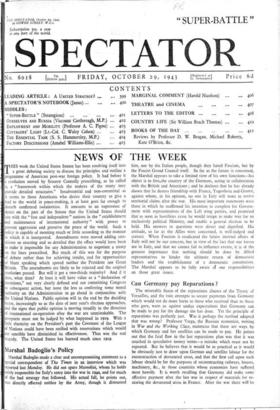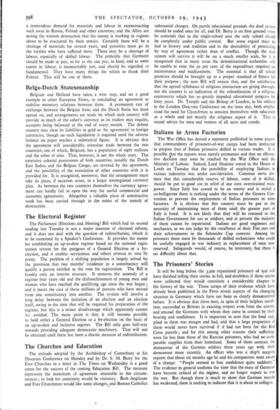Can Germany pay Reparations ?
The miserable fiasco of the reparations clauses of the Treaty of Versailles, and the vain attempts to secure payments from Germany which would not do more harm to those who received than to those who gave, warn us against undue expectations that Germany can be made to pay for the damage she has done. Yet the principle of reparations was perfectly just. Was it perhaps the method adopted that was wrong? Professor Varga, the Russian economist, writing in War and the Working Class, maintains that there are ways by which Germany and her satellites can be made to pay. He points out that the fatal flaw in the last reparations plan was that it was couched in speculative money terms—a mistake which must not be repeated. But he believes that it would be as practical as it would be obviously just to draw upon German and satellite labour for the reconstruction of devastated areas, and that the first call upon such labour should be for the purposes of reconstructing railways, houses, machinery, &c., in those countries whose economies have suffered_ most heavily. It is worth recalling that Germany did make some effective payment after the last war in respect of materials for re- storing the devastated, areas in France. After the war there will be
a tremendous demand for materials and labour in reconstructing such areas in Russia, Poland and other countries, and the Allies are noting the wanton destruction that the enemy is working in regions about to be evacuated by their armies. Certainly there will be a shortage of materials for several years, and priorities must go to the victims who have suffered most. There may be a shortage of labour, especially of skilled labour. The principle that Germany should be made to pay, so far as she can pay, in kind, and to some extent in labour, is incontestably just, and should be regarded as fundamental. They have many things for which to thank their Fahrer. This will be one of them.



























 Previous page
Previous page